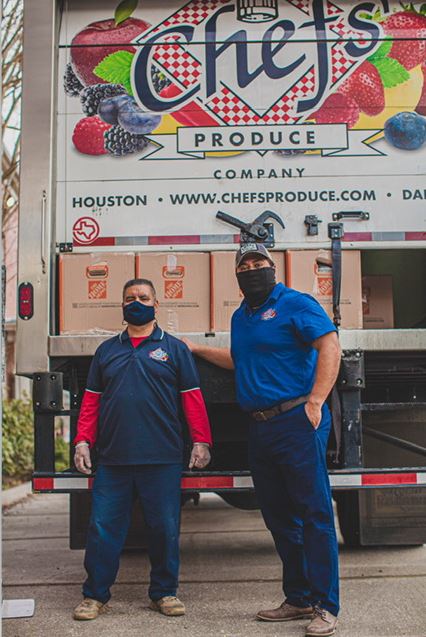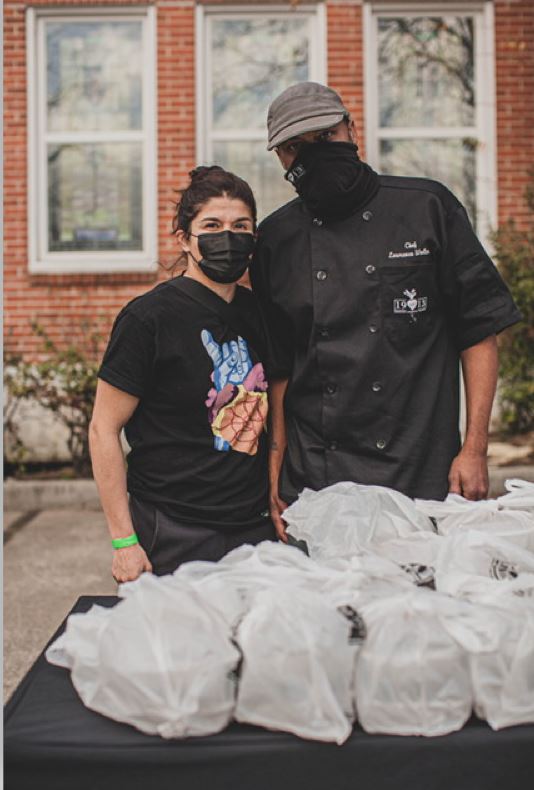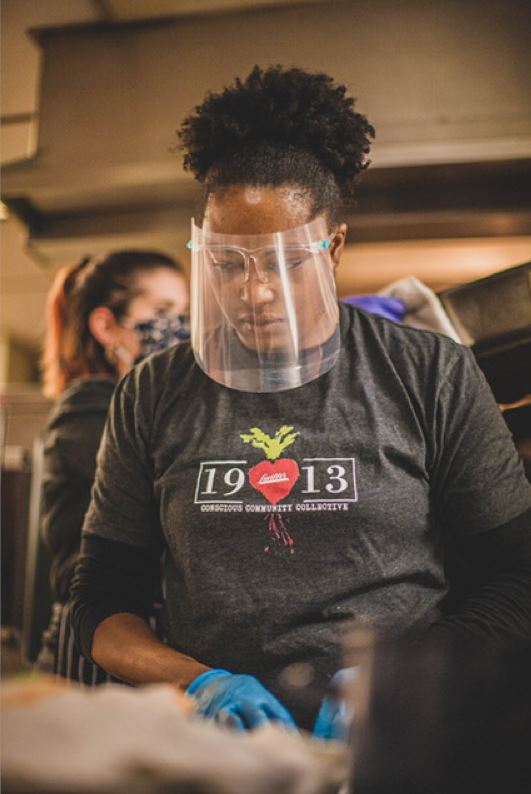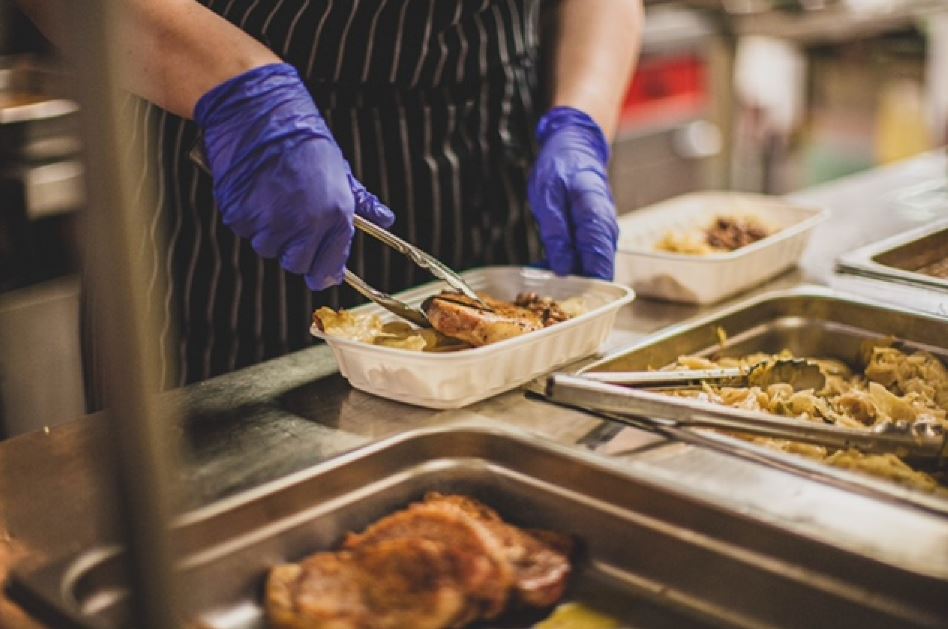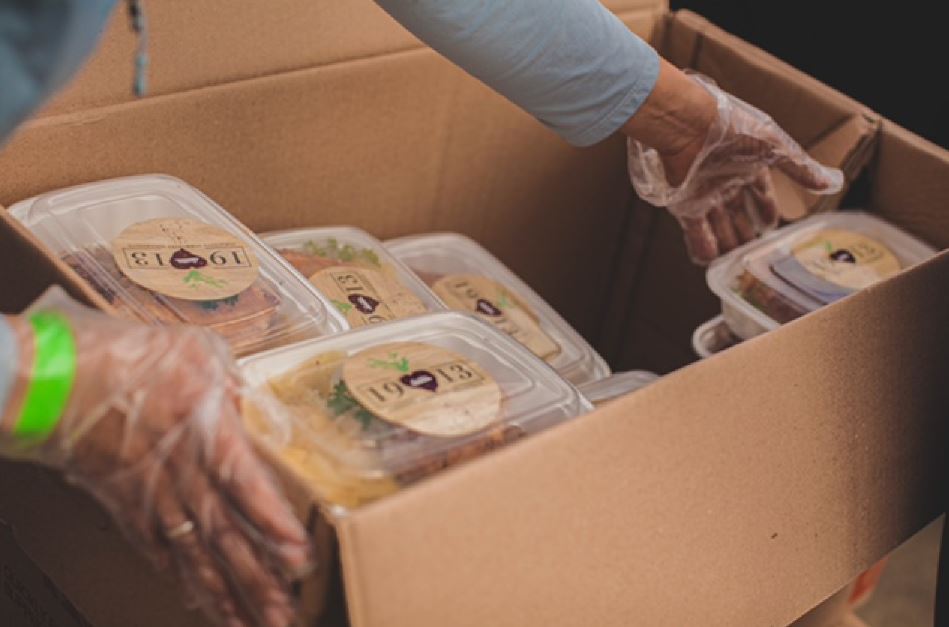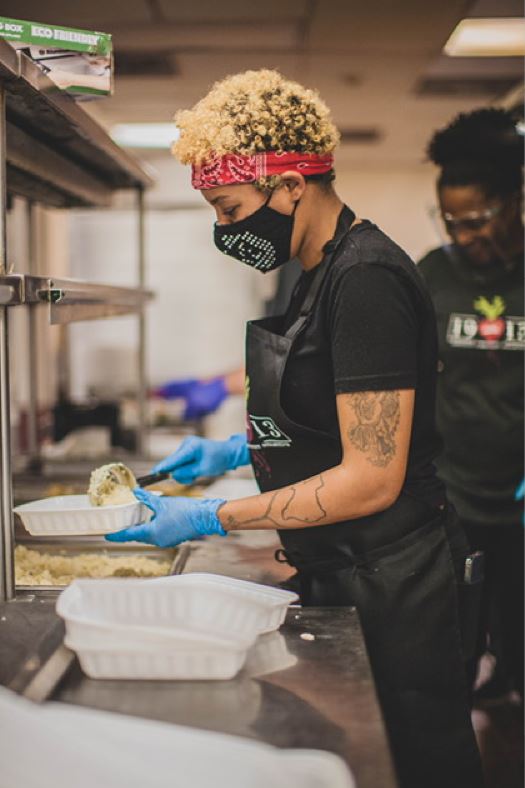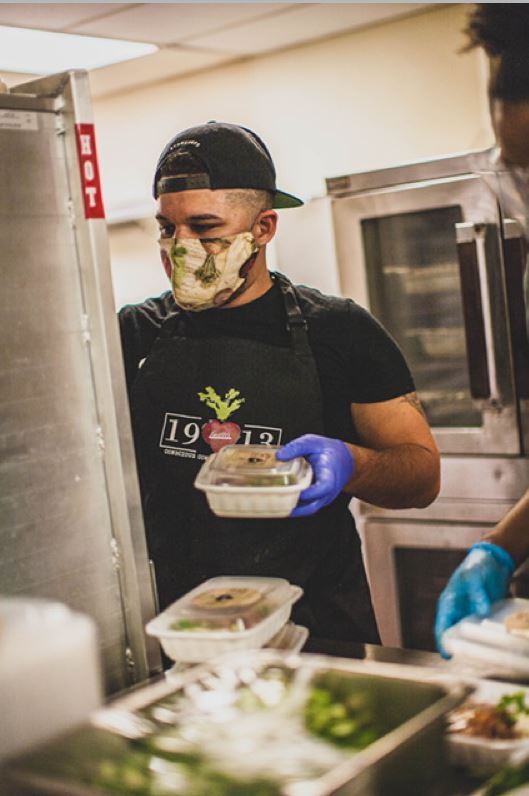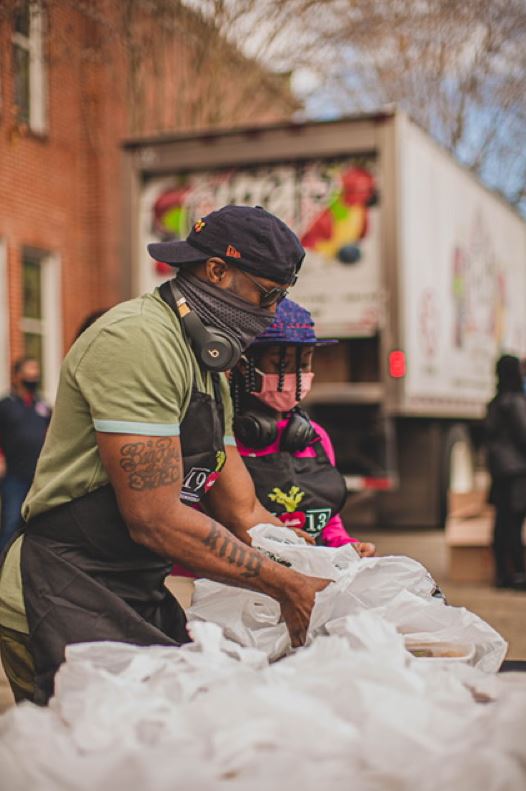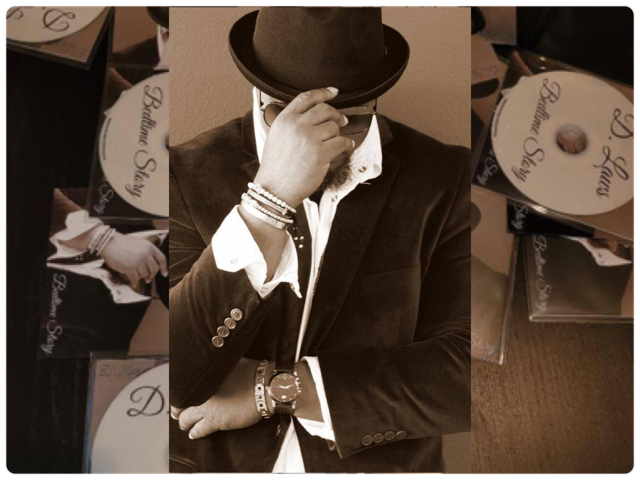Vibe Out: Lucille’s 1913
Written by Nakia Cooper on February 1, 2021
Pork & Beans and chili biscuits, sounds Southern enough, right? But when you add that “global” influence, those Pork & Beans evolve into a bone-in chop, Three Bean Ragu and a Creamed Collard Green Kimchi, and that chili biscuit is enhanced with cheddar cheese and Harissa Cream.
Serve it all up, and more, in a 1923 bungalow in Houston’s Museum District and you have Lucille’s, proudly named after the pioneering great-grandmother of Chris and Ben Williams, the restaurant’s co-founders.
Chris Williams is a native Houstonian who attended St. Pius and Westbury High Schools. Williams studied at Le Cordon Bleu in Austin, but got his cooking skills “honest,” as Southerners like to say; he’s a chip off his great-grandmother’s culinary block.
We’ve had the pleasure to dine out at Lucille’s before the pandemic struck, but with the new normal we’re now living in, we wanted to check in with Chris to see how the Black-owned business is holding up and what continues to light its fire.
What inspired you to be a chef?
Food has always been a universal language to me. When I was traveling across the world, I realized that no matter what country I was in, we all spoke the same language of food. It truly unifies cultures inside and outside of the restaurant kitchen.
How did you come up with the concept of your restaurant?
When I decided to move back to Houston and open a restaurant, I started revisiting my great grandmother Lucille B. Smith’s legacy. She was truly a culinary pioneer in her own right, and she is often regarded as Texas’ first African American businesswoman. Her resume includes everything from being the first black woman to join the Fort Worth Chamber of Commerce — filing femme-sole in order to acquire full ownership of her family-owned corporation, Lucille B. Smith Fine Foods, Inc — to her famous chili biscuits being served on American Airlines flights and at the White House. First Lady Eleanor Roosevelt, President Lyndon Johnson, Martin Luther King Jr., and heavyweight boxing champion Joe Louis were among her friends, fans, and customers. This year marks the 80th anniversary of her cookbook — Lucille’s Treasure Chest of Fine Foods — which was published in 1941 and has become a collector’s item. Her ingenuity directly inspires what we churn out at Lucille’s each day — well-refined Southern cuisine defined by history that utilizes infusions of international techniques and flavors.
How long have you been at your location and why did you choose it?
It’s been nine years. I was out with my kids at The Children’s Museum, and I noticed a space for lease across the street — this mission-style house. Later, I learned that it was originally built in 1955 and had been a segregated speakeasy, a daycare center, and a residence at one point. The history of the space paired with the Museum District location made it a no-brainer.
What do you feel is the best feature of your restaurant?
Lucille’s has always been a gathering place for people from all different walks of life. We’ve been able to build up a clientele that’s completely diverse. It looks just like my staff. Every day in my dining room, you’ll see everybody — Asian, Latinx, African American, White. They come in, and they’re breaking bread — if not together — in the same space comfortably. It’s a beautiful thing.
How have you adjusted during COVID?
When the pandemic first hit, we switched over our model to do takeout. We dropped all of the prices by over 40% across the board and streamlined the menu to keep our costs down. My goal was to cover our costs and keep our staff making exactly what they were making before the world changed. We were able to retain 75% of our staff during that time period. A month or so into the pandemic, we took the extra money that we were making, and started donating to the hospital workers who work those overnight shifts for six straight weeks; and after that, we donated nearly 10,000 meals through World Central Kitchen. When indoor and patio dining became an option for restaurants again, we were fortunate to have an outpouring of support from our guests. Since bars were still temporarily closed due to COVID-19 restrictions, we launched a pop-up series on our patio to benefit out-of-work bartenders. Each week, we invited a different bar and their staff to make and sell cocktails on our patio, where they kept 100% of the proceeds from the drinks sold. From July to October, the program generated a total of $42,000 for 14 different bars across the Houston area.
How do you feel about the renewed interest or national push of supporting Black businesses?
I liken the renewed push of supporting Black business to Black Wall Street. Our business and many others have benefitted significantly, and it’s beautiful because the reality is that what kept Black Wall Street dead — outside of homegrown terrorists taking it down in the first place — was desegregation. Black people already had these beautiful, self-sustaining communities of ingenuity and entrepreneurship that were filling the needs of our community … because we had to create our own, and we supported our own because no one else would give us access. But then the doors opened because people saw the power of Black dollar. So, capitalism began to beat out overt racism. With any culture, when you’ve been denied something for so long, you hold what you can’t have in such high regard. It’s like a carrot dangling in your face that you can’t have, so it looks like it’s the most delicious thing on the planet even though it’s the exact same thing you’ve always had. So as soon as everything was open to us, it was like the things that had been sustaining us for our whole lives were no longer good enough because it was coming from the same isolated community. So that killed this idea of Black Wall Street, and what’s happening right now is that folks are waking up, and they’re standing up. They’re discovering the value of keeping your dollars with your own. Supporting your own. Creating new models of success and being a part of supporting that ingenuity and the bravery it takes to step out on your own. In other cultures, they don’t build businesses with the expectation that some other culture is going to support them. They build it based off their own experiences and perspectives, which is shared within that community. So, their support starts there. We haven’t had that since desegregation, so it’s great that now it’s happening, and we’re giving ourselves a fighting chance.
What do you do to give back to the community?
Having my great grandmother as our namesake serves as a constant reminder that investing in family and community first is most important. After donating 3,000 meals to first responders and working with World Central Kitchen at the start of the pandemic to deliver 10,000 additional meals to low-income senior residences, we officially established our own non-profit, Lucille’s 1913. Lucille’s 1913 functions as a conscious community collective — building a vertically integrated ecosystem that will combat food insecurity and waste; create training and employment opportunities in traditionally under-resourced neighborhoods; and empower communities to discover a self-sustainable livelihood through food. To date, we have delivered 150,000 + meals to Houstonians in need; established two satellite kitchens in Southwest Houston and Fifth Ward; and planted two community gardens to provide garden therapy and access to fresh produce for the senior communities that we serve. You can find out more about our mission at lucilles1913.org.
What’s next?
We announced last week that we are officially launching Lucille’s Hospitality Group, which will encompass Lucille’s and our non-profit Lucille’s 1913, as well as three new additional culinary concepts that will be launched throughout 2021 — one of which is my first restaurant outside of the United States. Stationed in Canada, we’ve started construction on Emile’s Black Point Bistro, our newest culinary venture that honors the legacy of the restaurant space’s original owners — Emile & Samira — two Lebanese-born immigrants who have been in business in Nova Scotia for 40+ years. We’re reimagining the concept while preserving the tenants of its original culture, flavor, and family by infusing Nova Scotian ingredients and food ways with Lebanese accents. As a culinary student of the world and a United States Culinary Ambassador, I’ve had the opportunity to learn, travel, and taste my way through a multitude of different locations and cultures, and I’ve always uncovered inspiring stories along the way. Much like the story of Lucille’s, Emile’s menu will pay homage to local culinary innovators, while utilizing modern techniques and flavors in conjunction with local ingredients.


